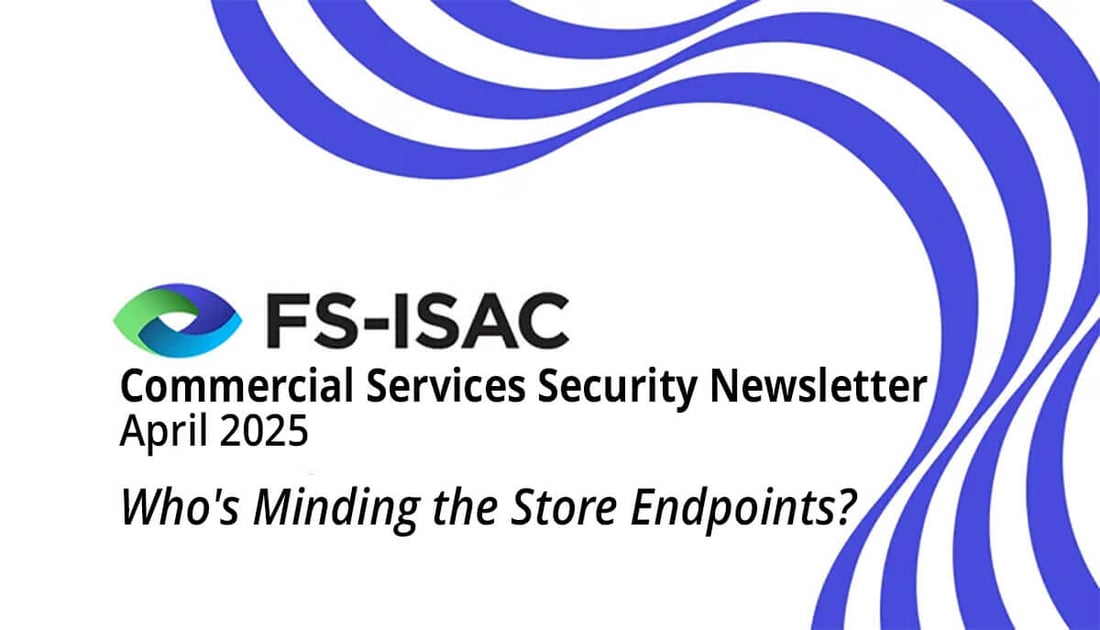Holiday ClosingIn observance of Presidents’ Day, our offices and branches will be closed Monday, February 16. You can access your accounts anytime through Digital Banking.
April 21, 2025 •FS-ISAC

Regardless of the size of your business, you have endpoints. As your business grows, so does the number of your endpoints. And the more endpoints, the more vulnerable your business is to attack.
An endpoint is a point of access, or a "door," where your employees or devices interact with a network or system, like a computer, smartphone, or server.
A cybercriminal can walk through any of these “doors” and steal money or data, install malicious software, or commit some other crime tricking employees to click on links or attachments that allow for malicious software to be installed – perhaps even ransomware!
Average Number of Business Endpoints*
< 50 employees = 22 endpoints
< 100 Employees = 114 endpoints
> 1,000+ employees = 1,920 endpoints
*e.g., computers, laptops, mobile phones, tablets, and servers
A small business, typically defined as one with fewer than 100 employees, has an average number of 114 endpoints. This includes computers, laptops, mobile phones, tablet devices, and servers. However, this number can vary according to the size of the business and the types of devices it needs to operate.
Endpoints should be protected with security protocols and monitored, but you can only protect the endpoints you own. The endpoints belonging to employees and third-party service providers are outside your scope of direct control, though they may provide access to employee information, customer accounts, financial records, intellectual property, and other critical components you require additional security.
Recourse can come in many different forms. In the event of burglary, vandalism, and theft, your recourse may be adequate insurance combined with resilience mechanisms, like data backups. You may have recourse in the form of the legal right to demand compensation or payment in the event of financial loss.
Endpoints put you at some risk. To determine how much, do a risk assessment to identify your business's critical assets and vulnerabilities. That information will help you implement additional controls to protect each endpoint. Risk management advisors, insurance agencies, and consultants can help you.
Your financial institution can also talk to you about increasing your endpoint security. Additionally, the Federal Trade Commission assists small businesses’ cybersecurity on the following topics:
©FS-ISAC, Inc. | All Rights Reserved
Reprinted with permission. The views, information, or opinions expressed in this article are solely those of the author and do not necessarily represent the views of Citizens State Bank and its affiliates, and Citizens State Bank is not responsible for and does not verify the accuracy of any information contained in this article or items hyperlinked within. This is for informational purposes and is no way intended to provide legal advice.